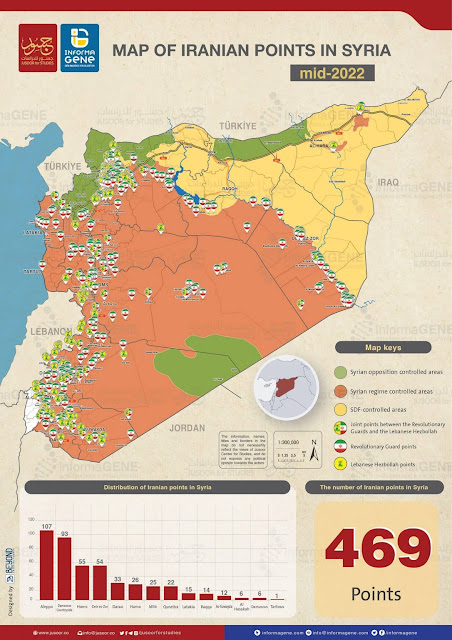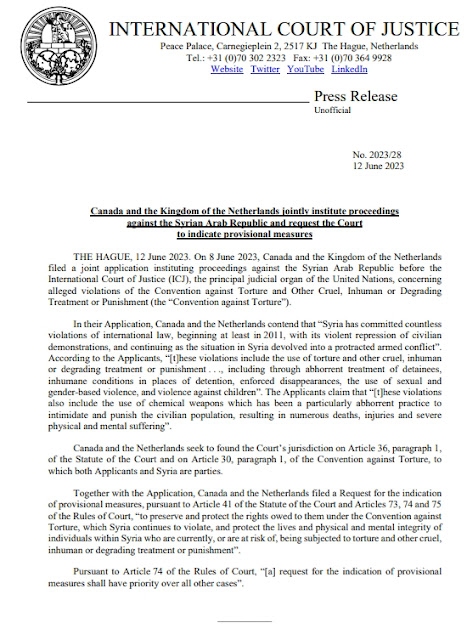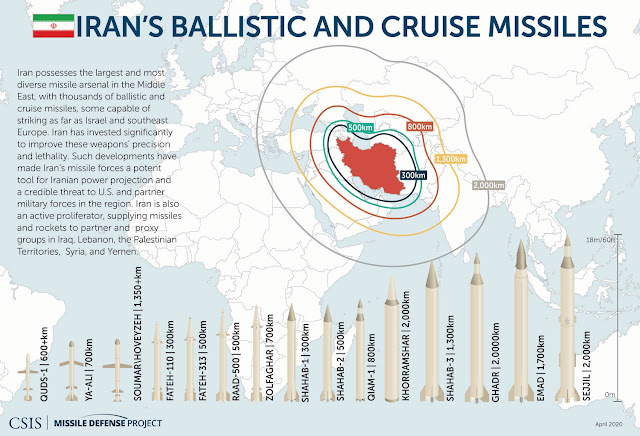USIP Briefing: The Iraqi Constitution
Progress, But Problems Ahead
The U.S. Institute of Peace
September 2005
While the proposed Iraqi constitution presented to the Transitional National Assembly on August 28, and slightly revised since, represents a marked achievement, pitfalls lie ahead. With an insurgency still raging in the Sunni-majority parts of Iraq as well as in Baghdad, Iraq experts spoke at an August 23 U.S. Institute of Peace meeting on Iraq's constitutional process. Speakers included Rend Rahim Francke, executive director of The Iraq Foundation; Neil Kritz, director of the Rule of Law program at the Institute of Peace; Jonathan Morrow, program officer in the Rule of Law Program at the Institute of Peace (participating by telephone from Baghdad); and Paul Williams, professor at American University. Daniel Serwer, vice president for Peace and Stability Operations at the Institute of Peace, moderated the discussion.
Sunni Reject a Shia/Kurdish Pact
The draft constitution is essentially a political pact between the Kurdish and Shia leaderships, Francke said. The groups have united in favor of a federal Iraq where Kurdish autonomy could be reproduced in the south by a federal unit comprising two or more Shia-dominated provinces. The central government will be far weaker than has traditionally been the case. Many Sunni, who governed Iraq for decades despite being a minority within Iraq, prefer a centralized state. They seem prepared to accept Kurdish autonomy but not a Shia federal unit, Morrow observed. The Sunni continue to reject the draft constitution, believing it ignores their interests and gives the Kurds and Shia control over a disproportionate amount of Iraq's wealth. The speakers agreed that if the rift between Sunni Arabs and the Shiite-Kurd alignment persists, it could seriously complicate Iraq's transition to democracy, leading to increased violence and a protracted political contest. They stressed that Iraq needs a constitution that is widely supported in all sectors of the country, especially in the Sunni areas that have been supporting the insurgency. Sunni support is key to defeating the insurgency, which has wreaked havoc on the new government. Sunni leaders promise to rally opposition among the population to have the Sunni voice heard in the October 15 national referendum, if their demands are not met. They will need two-thirds of the votes in at least three of Iraq's 18 provinces, or 50 percent of votes nationwide, to defeat the constitution. The experts noted it is not clear whether Sunnis will be able to garner enough support to succeed.
Controversial Provisions: Federalism, Rights of Women and Minorities
Many of the topics addressed in the constitution have been fervently debated and the constitutional provisions related to these issues are still controversial. The experts agreed that the controversies related to federalism and rights for women and minorities are among those most difficult to reconcile. Sunni opponents of the current draft constitution say its provisions for federalism would cripple the central government and promote sectarianism and even civil war. Moreover, Sunnis, along with secular Shiites, fear a federated state because more religious Shiites could establish an Islamic state in the south heavily influenced by Iran's neighboring theocracy. Panelists noted that the debate over federalism also has an economic component. The bulk of Iraq's oil resources are located in Kurdish- and Shia-controlled regions, with the richest reserves in the south. The draft constitution would allow a federal unit to keep a large percentage of revenues collected within its borders, while contributing only a fraction to the central government. Sunnis worry the plan would choke off the remainder of Iraq from the nation's oil resources, which provide approximately 90 percent of Iraqi GDP. Another controversial issue is the protection of minority and women's rights. According to Kritz, such protections were weakened in the final stages of negotiations, causing many minority leaders to withdraw their support for the draft. A number of civil society groups have fought for safeguards against Islamic law in familial issues such as divorce or inheritance. While the negotiations thus far have focused on constitutional language, the speakers emphasized that in the long run, the most critical variable may be the make-up of the constitutional court, whose members will ultimately interpret the document. A court dominated by religious clerics, for example, could be a recipe for an increasingly oppressive Islamic state, experts noted.
The Constitution-Making Process: Less Than Ideal
The Iraqi constitution-making process was supposed to have begun in February 2005, but delays in the formation of the cabinet and constitution committee caused drafting and negotiation to begin much later. The default constitutional deadline, August 15, was postponed as negotiations grew fractious among the three key political groups in Iraq. Despite continued objection from Sunni leaders, the constitutional committee signed a document on August 28 and presented it to the Iraqi National Assembly. Kritz argued that further changes are possible in the draft to be put forward for approval in the referendum scheduled for October 15 (in fact, several changes have now been made). Throughout this process, the time for public discussion has been brief. The referendum will be a test of popular support for the constitution. Iraqis have been discussing constitutional issues intensively and have submitted more than 100,000 suggestions to the Transitional National Assembly's constitutional drafting committee. Despite this, "there has not been the opportunity for a connection between public opinion and the drafting of the document," Kritz said. Moreover, publication and distribution of the official draft has been delayed, so that the time for discussion before October 15 will be abbreviated.
The Future?
Williams said he was impressed with the professionalism and consensus-building skills of the Iraqis on the constitutional committee, whom he observed first-hand. While they have not been fully successful in producing a text that commands support from all groups, the draft constitution is a step in the right direction, he said. However, the rift between Sunni on the one hand, and Shia and Kurds on the other, bodes ill. Morrow thought that this rift, though evident before the constitution-drafting exercise began, has likely been exacerbated by an accelerated constitutional timetable that sidelined the constitution committee and forced a premature resolution of sensitive issues including federalism. The challenge for Iraqis will be to minimize interethnic tensions and differences over constitutional issues through continued dialogue. Where differences are irreconcilable, the respective political groupings need to accord each other's views respect, which has not always been the case so far.
Progress, But Problems Ahead
The U.S. Institute of Peace
September 2005
While the proposed Iraqi constitution presented to the Transitional National Assembly on August 28, and slightly revised since, represents a marked achievement, pitfalls lie ahead. With an insurgency still raging in the Sunni-majority parts of Iraq as well as in Baghdad, Iraq experts spoke at an August 23 U.S. Institute of Peace meeting on Iraq's constitutional process. Speakers included Rend Rahim Francke, executive director of The Iraq Foundation; Neil Kritz, director of the Rule of Law program at the Institute of Peace; Jonathan Morrow, program officer in the Rule of Law Program at the Institute of Peace (participating by telephone from Baghdad); and Paul Williams, professor at American University. Daniel Serwer, vice president for Peace and Stability Operations at the Institute of Peace, moderated the discussion.
Sunni Reject a Shia/Kurdish Pact
The draft constitution is essentially a political pact between the Kurdish and Shia leaderships, Francke said. The groups have united in favor of a federal Iraq where Kurdish autonomy could be reproduced in the south by a federal unit comprising two or more Shia-dominated provinces. The central government will be far weaker than has traditionally been the case. Many Sunni, who governed Iraq for decades despite being a minority within Iraq, prefer a centralized state. They seem prepared to accept Kurdish autonomy but not a Shia federal unit, Morrow observed. The Sunni continue to reject the draft constitution, believing it ignores their interests and gives the Kurds and Shia control over a disproportionate amount of Iraq's wealth. The speakers agreed that if the rift between Sunni Arabs and the Shiite-Kurd alignment persists, it could seriously complicate Iraq's transition to democracy, leading to increased violence and a protracted political contest. They stressed that Iraq needs a constitution that is widely supported in all sectors of the country, especially in the Sunni areas that have been supporting the insurgency. Sunni support is key to defeating the insurgency, which has wreaked havoc on the new government. Sunni leaders promise to rally opposition among the population to have the Sunni voice heard in the October 15 national referendum, if their demands are not met. They will need two-thirds of the votes in at least three of Iraq's 18 provinces, or 50 percent of votes nationwide, to defeat the constitution. The experts noted it is not clear whether Sunnis will be able to garner enough support to succeed.
Controversial Provisions: Federalism, Rights of Women and Minorities
Many of the topics addressed in the constitution have been fervently debated and the constitutional provisions related to these issues are still controversial. The experts agreed that the controversies related to federalism and rights for women and minorities are among those most difficult to reconcile. Sunni opponents of the current draft constitution say its provisions for federalism would cripple the central government and promote sectarianism and even civil war. Moreover, Sunnis, along with secular Shiites, fear a federated state because more religious Shiites could establish an Islamic state in the south heavily influenced by Iran's neighboring theocracy. Panelists noted that the debate over federalism also has an economic component. The bulk of Iraq's oil resources are located in Kurdish- and Shia-controlled regions, with the richest reserves in the south. The draft constitution would allow a federal unit to keep a large percentage of revenues collected within its borders, while contributing only a fraction to the central government. Sunnis worry the plan would choke off the remainder of Iraq from the nation's oil resources, which provide approximately 90 percent of Iraqi GDP. Another controversial issue is the protection of minority and women's rights. According to Kritz, such protections were weakened in the final stages of negotiations, causing many minority leaders to withdraw their support for the draft. A number of civil society groups have fought for safeguards against Islamic law in familial issues such as divorce or inheritance. While the negotiations thus far have focused on constitutional language, the speakers emphasized that in the long run, the most critical variable may be the make-up of the constitutional court, whose members will ultimately interpret the document. A court dominated by religious clerics, for example, could be a recipe for an increasingly oppressive Islamic state, experts noted.
The Constitution-Making Process: Less Than Ideal
The Iraqi constitution-making process was supposed to have begun in February 2005, but delays in the formation of the cabinet and constitution committee caused drafting and negotiation to begin much later. The default constitutional deadline, August 15, was postponed as negotiations grew fractious among the three key political groups in Iraq. Despite continued objection from Sunni leaders, the constitutional committee signed a document on August 28 and presented it to the Iraqi National Assembly. Kritz argued that further changes are possible in the draft to be put forward for approval in the referendum scheduled for October 15 (in fact, several changes have now been made). Throughout this process, the time for public discussion has been brief. The referendum will be a test of popular support for the constitution. Iraqis have been discussing constitutional issues intensively and have submitted more than 100,000 suggestions to the Transitional National Assembly's constitutional drafting committee. Despite this, "there has not been the opportunity for a connection between public opinion and the drafting of the document," Kritz said. Moreover, publication and distribution of the official draft has been delayed, so that the time for discussion before October 15 will be abbreviated.
The Future?
Williams said he was impressed with the professionalism and consensus-building skills of the Iraqis on the constitutional committee, whom he observed first-hand. While they have not been fully successful in producing a text that commands support from all groups, the draft constitution is a step in the right direction, he said. However, the rift between Sunni on the one hand, and Shia and Kurds on the other, bodes ill. Morrow thought that this rift, though evident before the constitution-drafting exercise began, has likely been exacerbated by an accelerated constitutional timetable that sidelined the constitution committee and forced a premature resolution of sensitive issues including federalism. The challenge for Iraqis will be to minimize interethnic tensions and differences over constitutional issues through continued dialogue. Where differences are irreconcilable, the respective political groupings need to accord each other's views respect, which has not always been the case so far.


